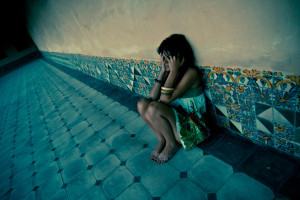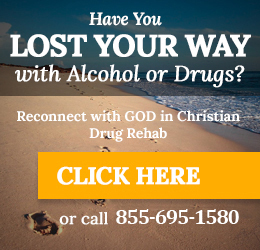Many patients in drug rehab will also suffer from some form of depression. “Depression” is a general term used to describe a generalized feeling of sadness or, more formally, a series of mental mood disorders that result in feelings of sadness. The actual depressive symptoms run the gamut from mild to severe and; when they reach a particular intensity and frequency, can be classified as a mood disorder, such as major depressive disorder, dysthymic disorder, substance-induced mood disorder or bipolar disorder (which is often followed by a period of elation or mania).
 According to the Diagnostic and Statistical Manual, depressive symptoms can be attributed to people whose conditions fall below the criteria necessary for a formal finding of a mood disorder. People with “depressive symptoms” may feel sad, hopeless or have the “blues”. A large majority of patients in drug rehab, enter with co-occurring depressive symptoms and full blown mood disorders. A recent study showed that approximately 40% of alcoholics and 60% of drug addicts also had independent mood disorders. The numbers reveal that women are more likely than men to suffer from addiction plus a mental disorder, especially depression.
According to the Diagnostic and Statistical Manual, depressive symptoms can be attributed to people whose conditions fall below the criteria necessary for a formal finding of a mood disorder. People with “depressive symptoms” may feel sad, hopeless or have the “blues”. A large majority of patients in drug rehab, enter with co-occurring depressive symptoms and full blown mood disorders. A recent study showed that approximately 40% of alcoholics and 60% of drug addicts also had independent mood disorders. The numbers reveal that women are more likely than men to suffer from addiction plus a mental disorder, especially depression.
Depression Treatment Program Options
Although people in drug rehab can be experiencing temporary periods of sadness or depressed mood, many are actually diagnosable with a bona fide mood disorder and require trauma treatment, or other dual diagnosis, depression treatment programs. Together, these patients will make up about half of the population at any treatment center, and are enrolled into dual diagnosis addiction treatment programs. Therefore, it is important for therapists working with depression rehab patients to be aware that they are often counseling patients who are experiencing mild depressive symptoms or have an actual dual diagnosis of addiction and mood disorder.
In order to develop an effective depression treatment program for dealing with depressive symptoms and co-occurring disorders during drug rehab, the screening process for mood issues must begin at client intake. Admissions and intake personnel should be trained to pay particular attention to clues that the patient is also experiencing symptoms of depression; screenings for mood issues should then continue throughout the course of treatment.
Learn More About Dual Diagnosis Treatment
Consequences of Depression Rehab
The main consequence of depression rehab is that the symptoms may interfere with patient recovery or prohibit the patient from engaging fully in the treatment process. Someone who is currently having trouble focusing or has a significant lack of energy will not be able to benefit from the sharing of others’ experiences in group therapy or a 12-step meeting. Other patients will have trouble keeping appointments, hold a belief that treatment is hopeless or withdraw from social activities altogether.
Substance-Induced Mood Disorder
Addiction to or withdrawal from drugs or alcohol can also lead to symptoms of depression. If severe enough, the symptoms can lead to a diagnosis of “substance-induced mood disorder”. This type of illness presents as a prominent and persistent disturbance of mood due to the psychological effects of drugs and/or alcohol. Substance-induced mood disorder can present as mania, depression or a combination of the two. In alcoholics, the disorder typically presents only during withdrawal and results in a depressed mood, anxiety, lack of appetite, difficulty concentrating, sleep disturbance, or paranoia. These symptoms are shared by most drug addicts during withdrawal as well. However in those who are addicted to opioids, such as heroin addicts, the disorder can present during either use or withdrawal, with symptoms during use presenting as lack of energy, poor appetite and trouble concentrating.
Many alcoholics and addicts who also suffer from depression may not be diagnosed until after they have stopped the drug or alcohol use, as the substances tend to cover up actual symptoms. For many, the depression may get worse once they enter sobriety.
The Right Depression Treatment Matters
One of the most important aspects of depression and substance abuse is that, without proper treatment, the depression can thwart sobriety. For some patients, effective treatment may require the use of medication long after they are discharged from drug rehab. Further, the co-occurrence of addiction and depression often leads to a delay in seeking treatment.
Call Us Today to Speak with An Elements Behavioral Health Addiction Advisor:
855-763-6488
We Can Help You Find the Right Depression Treatment and Recovery Options



